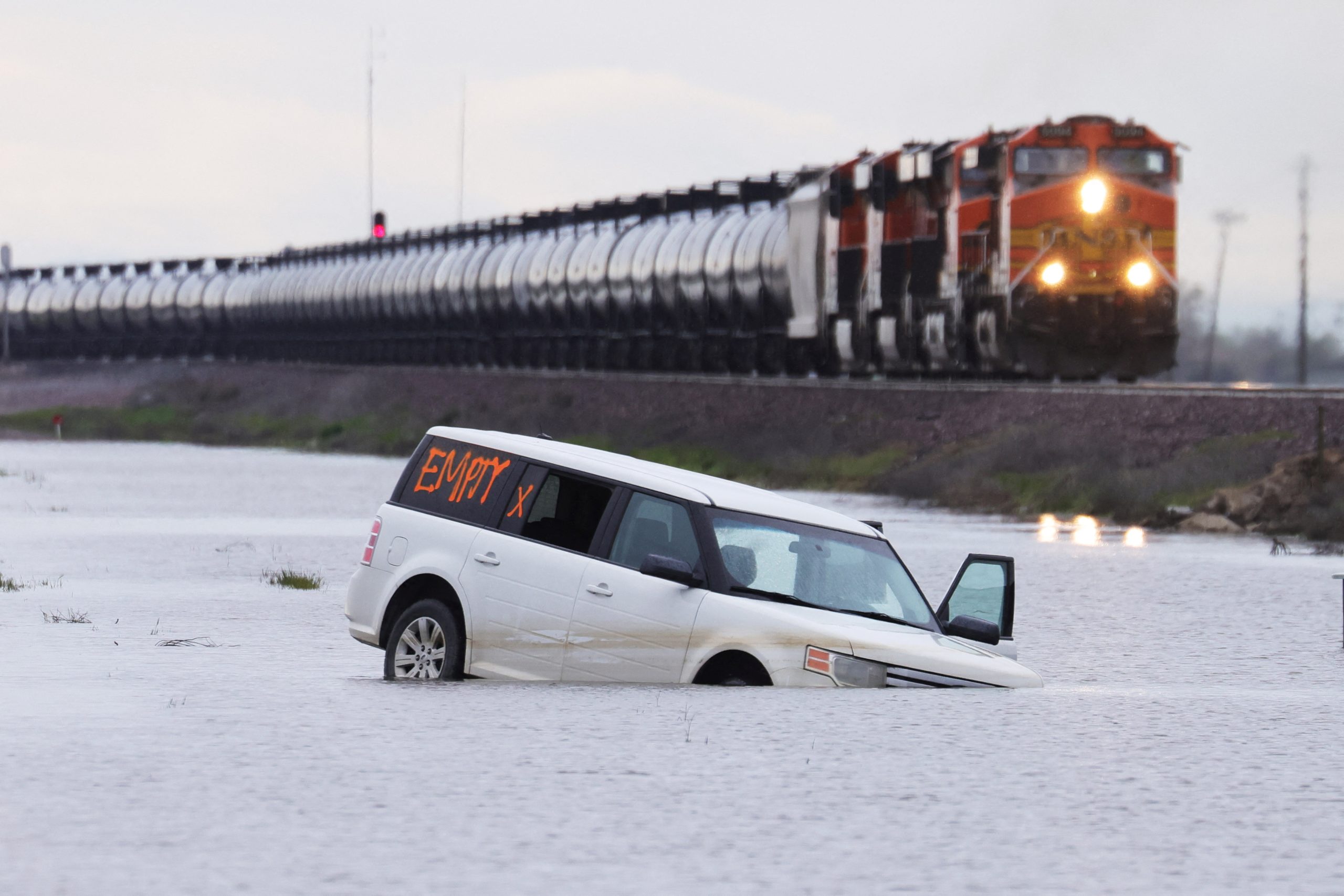
[elfsight_social_share_buttons id=”1″]
The latest bout of harsh, wintry weather to lash California drifted into neighboring states of the Desert Southwest on Wednesday as authorities reported at least five storm-related deaths in and around San Francisco, all from fallen trees.
As California‘s onslaught of rain, wind, and mountain snow subsided, downed power lines from Tuesday’s storm left more than 92,000 homes and businesses without electricity as of Wednesday afternoon, while lingering floods kept 14,000 people under evacuation orders.
Nearly 48,000 others statewide were warned to be ready to flee to higher ground in the event rain-swollen streams overflow their banks or storm-weakened levees fail, according to Diana Crofts-Pelayo, a spokesperson for the California Office of Emergency Services.
The bulk of mandatory evacuation orders, covering some 12,000 people, were in Tulare County, a flood-stricken region in the San Joaquin Valley, where high water from recent levee failures has inundated a number of communities.
The storm was the product of yet another in a recent succession of “atmospheric rivers,” immense airborne currents of dense water vapor carried aloft from the ocean and flowing overland in bouts of heavy rain and snow.
It marked the twelfth such storm to sweep the West Coast since late December, the latest one notable for extreme winds that accompanied the precipitation and in some places wreaked the most havoc.
Five people were killed by trees toppled by high winds across California‘s Bay area on Tuesday – two in San Francisco, one in Oakland, and one each in Contra Costa County and San Mateo County, according to officials and local media reports.
At least two of the victims died in their vehicles, and one was crushed inside a tent.
More than 20 other storm-related fatalities have been tallied across California from previous episodes of violent weather this winter.
Uprooted trees left vulnerable to the gale-force winds that howled across the state after weeks of rain were especially prevalent in the Bay area.
Initial reports tallied more than 700 incidents of fallen trees and large limbs in San Francisco, as well as reports of shattered glass and other debris blowing off high-rise towers, city officials said.
In the Los Angeles suburb of Montebello, a rare tornado spawned by the storm early on Wednesday heavily damaged nearly a dozen buildings and a number of vehicles and left one person with minor injuries, the Los Angeles City News Service reported, citing the National Weather Service and local authorities.
The Los Angeles area received some of the heaviest rainfall from the latest storm, with records for the date being set in downtown L.A., suburban Burbank, and the adjacent city of Long Beach, all measuring well over an inch of rain on Tuesday, according to CNS.
The storm brought heavy snow to higher elevations. Total snow accumulations of up to 4 feet and locally up to 5 feet, were in the forecast, the weather service said.
California‘s exceptionally wet winter created an abrupt reversal of fortune for a state preoccupied for the past few years by drought and wildfires.
The glut of precipitation has replenished sorely depleted reservoirs and the state’s mountain snowpack.
As rain, snow, and winds dissipated across California on Wednesday, the storm front crept east across parts of Nevada, Arizona, Colorado, New Mexico, and Utah, the weather service said.
Copyright 2023 Thomson/Reuters
